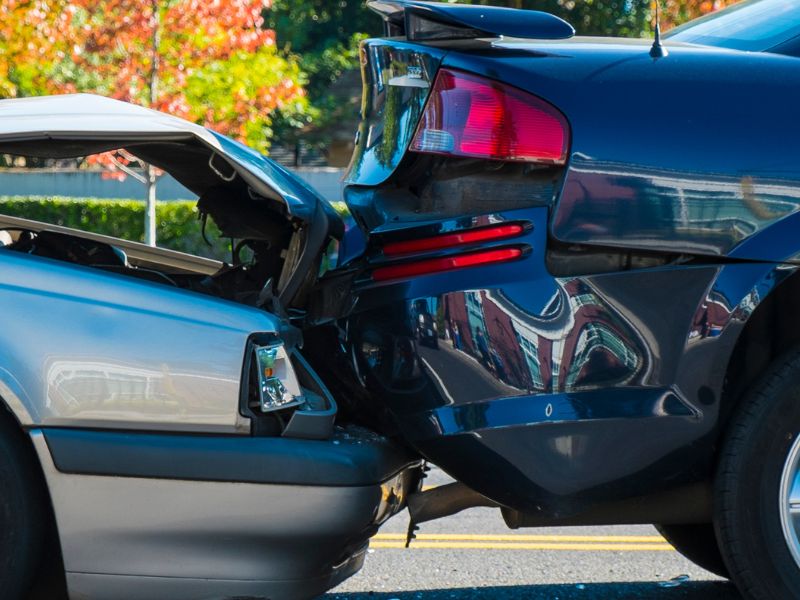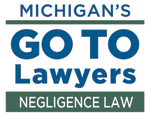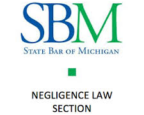
Tailgating increases the risk of a rear-end collision. It occurs when one vehicle follows another too closely, and is a highly dangerous practice. It is also against the law in Michigan. But sadly, reckless drivers violate this fundamental road rule far too often. Michigan police data shows there were 50,776 rear-end crashes statewide in 2020, resulting in 13,904 injuries and 81 deaths.
While some might think that rear-end crashes only result in minor injuries, the truth is far different. Tailgating accidents can cause severe harm, especially at high speeds. Following too closely can also lead to deadly chain-reaction crashes involving multiple vehicles. The potential for serious injuries in those scenarios is much higher.
If you were hurt in a Michigan car accident caused by tailgating, you could be entitled to compensation for your losses. The experienced attorneys at Christensen Law can help you hold the responsible driver accountable for your losses.
Our skilled attorneys have successfully represented injured Michiganders for over 30 years. We work hard to deliver results that count — and we have the talent and resources to accomplish those goals. Our law firm has a track record of winning top-dollar verdicts and settlements for our clients.
Safeguarding your future after an injury accident is our priority. Call or contact us today for a free consultation with a trusted Michigan car accident lawyer.
Tailgating: Why is it Dangerous?
Tailgating is unsafe because it significantly increases the risk of car accidents on Michigan roads. Negligent drivers may underestimate how long their vehicles take to come to a complete stop. According to the National Association of City Transportation Officials, a car traveling 60 miles per hour (mph) takes more than 300 feet to stop once factors like braking distance and a driver’s reaction time are factored in. That’s the distance of a football field.
Some driving schools instruct drivers to determine safe following distance according to the “car-length rule.” According to this rule, every 10 mph of speed requires a following distance of one car length. Therefore, a driver traveling at 30 mph should maintain three car lengths between their vehicle and the one in front. At 60 mph, there should be six car lengths between vehicles.
The Michigan State Police advise using a two-second measurement for following distance during daytime driving. That means no matter how fast you are going, you should keep two seconds’ worth of space between your car and the vehicle in front of you. When driving at higher speeds, the distance traveled over two seconds will be longer. You should increase that time to three seconds at night and four seconds during inclement weather conditions, such as rain, snow, or ice.
Rear-End Collision Injuries
Rear-end collisions can result in severe injuries, even at relatively low speeds. The most common injuries caused by Michigan tailgating accidents include:
- Whiplash
- Concussion or severe traumatic brain injury (TBI)
- Back injuries
- Soft tissue injuries, such as strains or sprains
- Torso injuries
- Broken bones
- Lacerations
- Nerve damage
- Internal organ damage
Seek medical attention immediately after a tailgating accident to ensure you are diagnosed properly and provided the care you need. The doctor will document the injuries on your medical record, which is crucial if you need to seek compensation from the at-fault driver later.
Determining Liability after Rear-End Collisions
Most of the time, the driver who rear-ends another car is held responsible for the accident, especially if they were tailgating.
However, there may be instances where the rear driver is not solely at fault for the accident. For example, if the lead driver cut over abruptly in front of the following vehicle, they may also have contributed to the accident.
If the driver in front was “brake checking,” or pumping their brakes to signal to the rear driver to back off, they might also bear some responsibility for the rear-end collision.
Getting Compensation for Tailgating Accidents in Michigan
Michigan drivers must carry no-fault automobile insurance coverage, including personal injury protection (PIP), property protection insurance, and residual liability insurance. No matter who is at fault for a collision, accident victims turn to their own insurance companies to recover compensation for:
- Reasonably necessary medical costs
- Lost wages for up to three years
- Cost of replacement services if needed, such as housekeeping, yard work, or personal care
No-fault benefits do not include compensation for non-economic damages such as pain and suffering. In Michigan, you must have suffered a threshold injury to pursue compensation for pain and suffering from the at-fault driver. State law defines a threshold injury as one that causes a “serious impairment of body function or permanent serious disfigurement.”
Michigan’s no-fault automobile insurance laws are complex and change over time, most recently in 2020. That’s why working with a knowledgeable car accident attorney is essential after a tailgating accident. A lawyer can explain your legal options, prepare your claim, and aggressively pursue the money you deserve.
Get Help from our Attorneys Today
If you suffered injuries in a tailgating accident in Michigan, turn to the trusted car accident attorneys at Christensen Law for help. Our legal team will handle all of the legal legwork while you focus on taking care of yourself. Contact us by phone or online for a free consultation today.





























